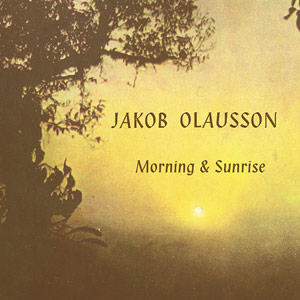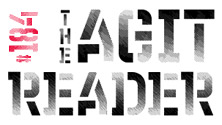
Morning & Sunrise
De Stijl
Hanging the “loner” or “outsider” tag onto Jakob Olausson is journalistically lazy, but a necessary exercise when explaining the realm from which the Swedish folkie has come. Knowing that anyone who approaches Olausson’s sophomore record, Morning & Sunrise, will align him with that type of home-cobbled craft, De Stijl simply states that “we associate clarity this potent with solitude.” Like a modern day equivalent to albums in the loner cannon from Skip Spence and Syd Barrett, Olausson’s spooky and sparkling debut, 2007’s Moonlight Farm, possesses a psychedelic purity. It has a timeless quality, like one of those solo yarns found in the Acid Archives that was pressed on a whim, made on the cheap, and eventually lost in the ether of a headier era. Only it’s hard to imagine Olausson trapped in some basement, his mind abuzz and pouring every last ounce of his artistic being into a singular batch of songs. There’s more to this man and his songwriting, as one can tell digging into Morning & Sunrise, which may even eclipse his former work.
There’s no such thing as instability, happy accidents or spirit guided whimsy here. Those qualities are all determined in the ear of the beholder. Think what one wants, Morning & Sunrise is, in the most literal sense, the awakening after a night with Moonlight Farm. Instantly with “Don’t Drown in Sorrow,” Olausson shows the kind of lucidity that can only come from solitude. This loneliness, though, is more stoic, as if Olausson sits upon a rock, overlooking rural Sweden, singing his drowsy, miasmic songs to anyone in need of a soothsayer, a storyteller, or a twisted lullaby.
Morning & Sunrise doesn’t stray too far from Olausson’s previous outing. Most of the record circulates the same veins, yet now there seems to be a heightened acquiescence between Olausson and his guitars. Unlike many of the outsiders, his leads become so profound on, for example, the stunning “Neptune,” that they form trails off the beaten path, wormholes hard to ignore. The record is still mysterious and mirage-like in its formation, but increased amounts of electric guitars, some steady drumming and proof that Olausson might have some friends about, result in perfectly linear (and quite catchy) tunes. “Engraved Invitation,” could act as a gateway into the beams of light which accent the cover, and “When Your Bridges Burn,” as the retreat back into the shadows. Both represent Olausson getting closer to a balance between loner and keeper of an oracle for the transcendent power of the psychedelic universe. “Doctor’s Deeds,” thankfully provides an elegant ending and translation of that teetering. It’s the album’s clearest moment—a low end, a voice undisturbed, a distant choral of harmony—when all the stars get in line and wait for dusk.
Kevin J. Elliott
PRIMITIVE FUTURES
Reports, Dinamo Cambridge
January Singles Round-Up
An Interview with El Jesus de Magico
Cruddy, Negative World
Household, Items
Los Llamarada, Gone Gone Cold
December Singles Round-Up
Introducing... Radio People
Another Wave from the Aussie Underground
Introducing... Spanish Prisoners
November Singles Round-Up
Speculator, Nice
Introducing... Gross Magic
Jerusalem and the Starbaskets, DOST
